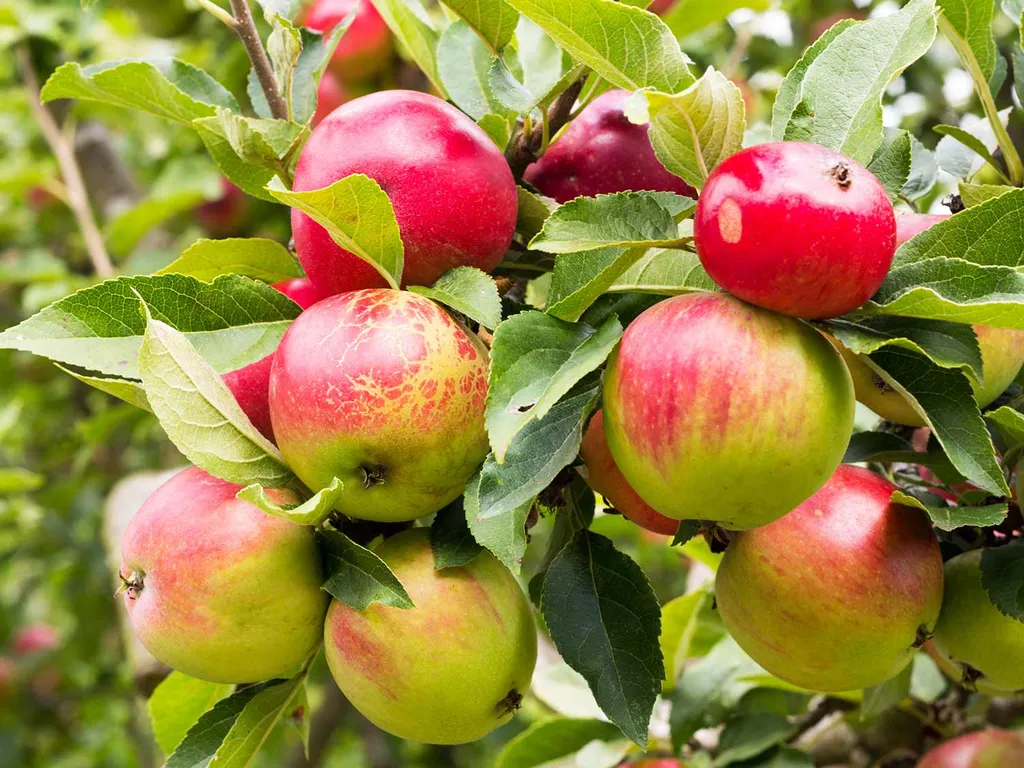In the heart of Bulgaria, a groundbreaking study is reshaping the future of apple cultivation, offering a beacon of hope for farmers grappling with the challenges of a changing climate. Dr. Antoaneta Gigova, a leading researcher at the Institute of Soil Science, Agrotechnology and Plant Protection “Nikola Pushkarov” in Sofia, has been at the forefront of this innovative research, published in the journal *Soil Science, Agrochemistry and Ecology* (translated from ‘Почвознание, агрохимия и екология’).
The study, conducted over two years, focused on three apple varieties—Florina, Golden Delicious, and Granny Smith—grown under precise irrigation conditions. The goal was to find innovative solutions for fruit tree cultivation in the face of warming and drying trends. “We needed to understand how different apple varieties respond to controlled irrigation in a changing climate,” Dr. Gigova explained. “The results could have significant implications for commercial orchards and the broader agricultural sector.”
The experimental field in Chelopechene provided a unique setting for this research. The soil, classified as leached Cinnamon forest, was carefully managed to maintain pre-irrigation soil moisture at 70% of the field capacity (FC). Despite the dry conditions, with exceedance probabilities of 95.67% in 2020 and 94.07% in 2021, the study successfully demonstrated the potential of precision agriculture.
In 2020, maintaining soil moisture required 10 irrigations with a norm of 380 mm, while 2021 saw 12 irrigations with a norm of 510 mm. The results were striking. The Florina variety, in particular, showed remarkable resilience and productivity, yielding 431% more than the Granny Smith variety. “These findings highlight the importance of selecting the right varieties and implementing precise irrigation strategies,” Dr. Gigova noted. “It’s not just about watering the plants; it’s about understanding their specific needs and adapting to the changing environment.”
The commercial implications of this research are vast. As climate change continues to impact agricultural practices, farmers and agribusinesses are increasingly looking for sustainable and efficient solutions. Precision agriculture, with its focus on data-driven decision-making, offers a promising path forward. By optimizing water usage and improving crop yields, this approach can enhance profitability and reduce environmental impact.
The study also underscores the importance of mulching and drip irrigation systems, which were integral to the success of the experiment. These technologies, combined with careful variety selection, can help orchards thrive even in the face of adverse weather conditions. “The future of agriculture lies in innovation and adaptation,” Dr. Gigova said. “We must continue to explore new techniques and technologies to ensure the sustainability of our food systems.”
As the agricultural sector grapples with the challenges of a changing climate, studies like Dr. Gigova’s provide valuable insights and practical solutions. The findings not only have the potential to revolutionize apple cultivation but also to inspire broader advancements in precision agriculture. By embracing these innovations, farmers and agribusinesses can secure a more sustainable and prosperous future.

